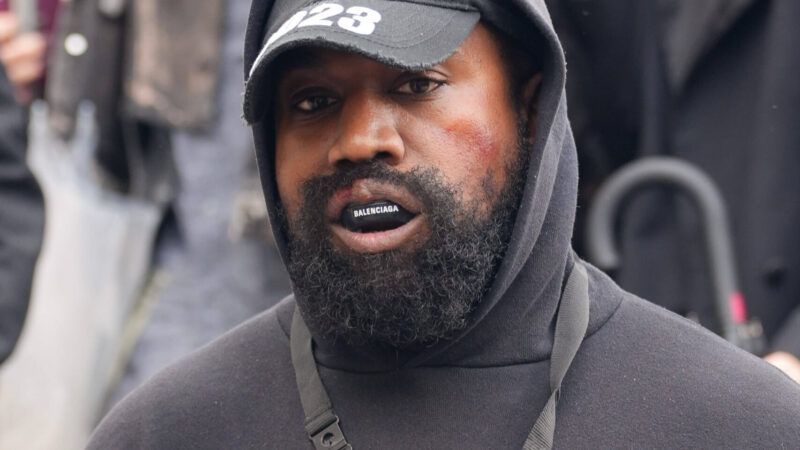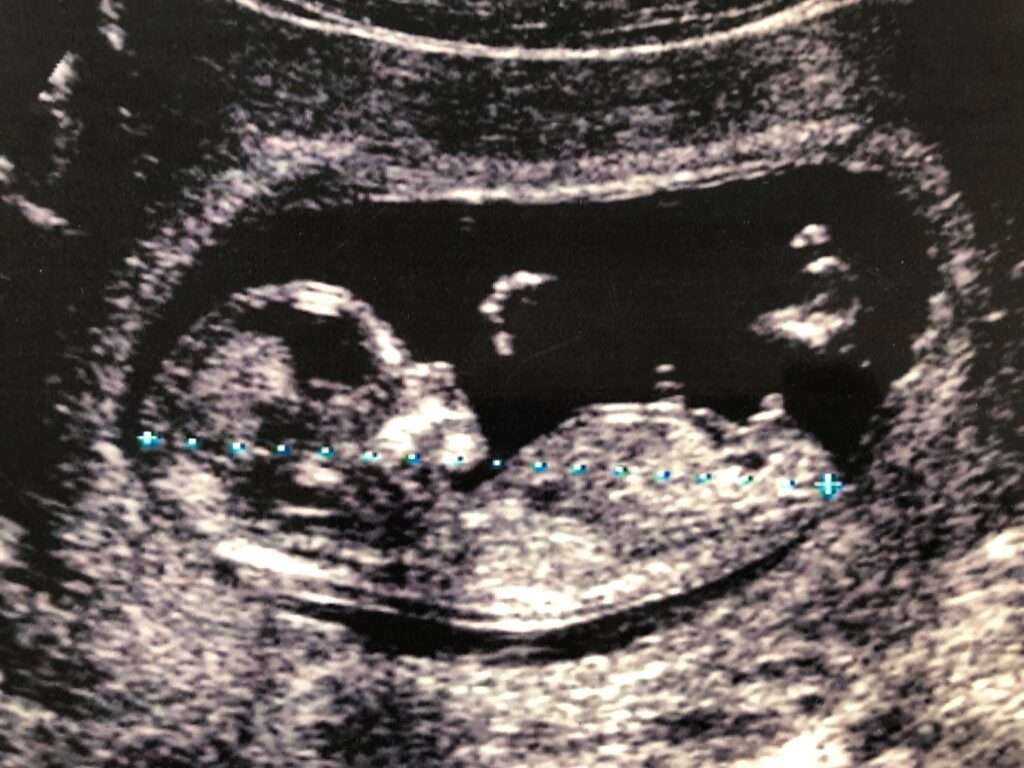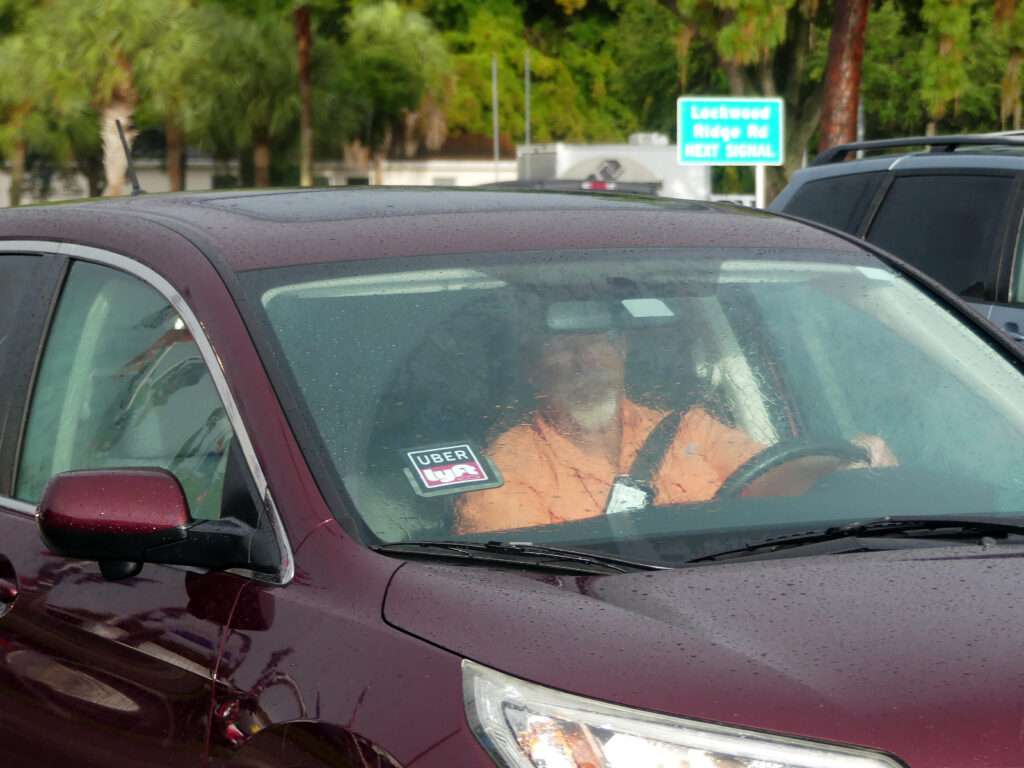Should Tucker Carlson Have Protected Ye From Himself?
Plus: Supreme Court won't consider right of fetus to bring lawsuit, Biden's bid to reclassify gig workers, and more...

In the midst of some highly questionable antics, Ye—better known as Kanye West—went on Tucker Carlson Tonight last week. The two-part interview was full of further evidence that the artist and entertainer, who has been open in the past about his bipolar disorder, may once again be working through some mental health issues. It preceded West being suspended from Twitter for saying he was going to go "death con 3 on JEWISH PEOPLE."
Now, Motherboard has published some clips from Carlson's chat with Ye that Fox News did not air. The clips contain more talk about Jewish people and claims that professional actors were "placed into my house to sexualize my kids."
Motherboard's move has kicked off a debate over whether publishing these clips was ethical, as well as whether Carlson should even have conducted the interview in the first place.
"If you ever find yourself thinking, *We acquired and will now publish footage that Tucker Carlson found it irresponsible to air* that might be a sign that the world would be better off if no one published the footage," suggested The Atlantic's Conor Friedersdorf on Twitter.
Friedersdorf was responding to Ben Dreyfuss, who wrote that "Kanye comes off so crazy in this that I don't have a problem with Tucker cutting most of it. I feel like he actually should have gone further & not aired any of the interview at all. Like, this is clearly a mentally ill person going through a manic episode."
But others pushed back on the idea that Motherboard was wrong to publish the unaired clips, noting that the bits Carlson did show (including Ye's defense of wearing a White Lives Matter shirt to Paris Fashion Week and his talk of being pressured into not supporting Donald Trump) seemed designed to flatter conservative sensibilities without giving them a full picture of Ye's mental state. Some suggested that Carlson's choice not to include Ye's more outlandish comments was not based on journalistic responsibility but a desire to frame the artist as a brave conservative truthteller.
"I think the point is that the [out-take] footage makes clear that the person being discussed is actually in the midst of a mental health crisis, which is explicitly not how his appearance on the show was framed," commented Jane Coaston of The New York Times.
Criminal justice writer Josie Duffy Rice commented that "the alternative seems to be 'people watch the kanye interview on tucker and take him to be a reliable narrator/reasonable person with whom to align themselves.'"
"How is the world better off not having all the information necessary to evaluate the most popular cable network's interview with a extremely well-known public figure about controversial issues?" asked lawyer Ken "Popehat" White. "I mean, if Tucker decided not to air the interview at ALL because Kanye is ill, then I could see asking whether any of it should be aired. But when the most powerful network deliberately concealed clear signs of illness in order to promote their message . . . well." He added: "I don't think you can evaluate the Kanye stuff that was shown — and that people are defending — without showing the context."
Friedersdorf responded that he still feels "queasy about publishing footage of someone's manic episode and all its incendiary madness."
I feel queasy about spreading that footage if the only value it adds is *Carlson's show misleads its viewers*, something I lament and find newsworthy but that can be easily highlighted in a million other ways without using what seems like a manic crisis
— Conor Friedersdorf (@conor64) October 11, 2022
Andy Craig of the Cato Institute suggested that in this case, "the harm to Kanye is minimal (his condition is already very public and has been for years), but it substantially bolsters the purpose of exposing Tucker's mendacity and scummy exploitation of an unwell man."
Ye's recent comments and behavior have also kicked off broader debates about how we should treat someone in the public eye seemingly having a mental health episode, as well as what role bipolar disorder plays in contributing to erratic or offensive behavior.
A number of people have suggested that bigotry can't be blamed on mental illness and we shouldn't give Ye a pass on it just because he's bipolar. But acknowledging the role Ye's illness may play needn't totally absolve him, writes Freddie deBoer, suggesting that people's aversion to attributing Ye's behavior to bipolar disorder stems from broader beliefs about disability and oppression.
There's a meme that's arisen in the past few years, found prominently on social media: "mental illness doesn't do that." It's a declaration that a given figure must not be given any special consideration, when weighing their behavior, due to their potential psychiatric disorders. The sociology of the term isn't hard to understand. The stereotypical usage arises following a mass shooting. People want to reject right-wing claims that mental illness is to blame for such shootings, and they want to maintain the contemporary liberal conceit that race is the sole monocausal motivator of all events. Suggesting that mass shootings or other bad behavior could happen under the influence of psychiatric disorders complicates those questions, and we can't have that. Now we have Kanye West, known to have bipolar disorder, who has been increasingly unstable, flirting with the right-wing, engaging in anti-Semitic tropes, and generally operating outside of the boundaries of what people imagine mental illness to look like when they define the mentally ill for political gain. He can't be doing these things because he's sick, according to many. He just can't.
Because to consider the other possibility, that his serious mood disorder has indeed played some role in his tempestuous behavior, is to invite that which modern political culture can't abide: moral complexity. In this era of social justice, everyone is divided between the perfectly unblemished victims and the permanently discarded oppressors. If West's erratic behavior was influenced by his bipolar disorder, we might feel compelled to extend sympathy to someone who's guilty of saying some unfortunate things; we would sully the perfect distinction between goodies and baddies. We would not be able to sit back in perfect judgment of West and comfortably assign him a place in our binary moral universe. We would be compelled to invite complication, equivocation, uncertainty. And we can't have that. So we must insist that West's bipolar disorder, a condition that can provoke extreme impulsivity and lower inhibitions, could not have played any role in his recent behavior. Like I said. Convenient.
Ben Dreyfuss also takes up this theme in his newsletter, Calm Down:
"Mental illness will not make you a bigot" is just not a true statement. I am a bipolar person who has been institutionalized for it and spent lots of time with other mentally ill people.
The fact is mental illness won't necessarily make you do those things, but it could!
A lot of these people framed their incoherent whining in terms of their own mental illness. "I've never been anti-Semitic and I'm mentally ill! Kanye is giving us a bad name!" I've spent a lot of time in therapy and in nuthouses and seeing top-level psychologists and these motherfuckers are lying. As Josh put it, they "only believe in mental illness to the extent it serves their political project."
If they had ever spent even one second in therapy they would know that saying definitely how someone else's psychiatric problems work based on a couple of tweets is sort of a no-no.
Reason's Nick Gillespie will be hosting a live discussion about these issues from 1-2 p.m. EST tomorrow. You can tune in on this website or on YouTube, Facebook, or Twitter.
FREE MINDS
The Supreme Court won't hear a case concerning a fetus' right to sue. The U.S. Supreme Court has declined to consider a case involving fetal personhood. The case comes from Rhode Island, where a Catholic group and two pregnant women wanted to challenge the state's abortion statute on behalf of the fetuses the women were carrying.
The Rhode Island Supreme Court ruled in May that the fetuses didn't have a right to bring a case. The women then asked the U.S. Supreme Court to take up the case, writing in their petition that SCOTUS "should grant the writ to finally determine whether prenatal life, at any gestational age, enjoys constitutional protection—considering the full and comprehensive history and tradition of our Constitution and law supporting personhood for unborn human beings." On Tuesday, the Court declined without comment.
FREE MARKETS
Stop trying to put people out of work, Joe. The president has released a draft regulation which would make it harder* to classify gig workers as independent contractors. More from Reason's Christian Britschgi:
It's the latest spat in the war being waged in states across the country (most notably/notoriously California) over how to classify Uber drivers, tattoo artists, and opera singers as gig economy arrangements have grown in relation to traditional employment.
Organized labor and liberal lawmakers have tried to lump as many workers into the "employee" bucket as possible in an effort to guarantee more people the overtime pay and benefits that come with that designation. But those efforts have often provoked rebellions from gig workers themselves (and the companies they do business with) who object to the added regulation and rigidity that comes with being an employee.
The draft regulation released by the U.S. Department of Labor (DOL) today sides with the former group. They propose reinstating a pre-existing, six-factor "totality-of-the-circumstances" test for determining who counts as an employee under the Fair Labor Standards Act (FLSA).
That test more closely aligns with the expansive definition of an employee put forth by bills like California's A.B. 5 or the federal PRO Act.
The Wall Street Journal editorial board notes that it's not just Uber drivers and the like that would be caught up in this change:
The proposed rule has the potential to sweep broadly and could cover most corners of the economy.
Newspaper columnists, truck drivers, real estate agents, barbers, consultants and many other freelancers could be ensnared. The Administration is proving it's an equal-opportunity jobs killer.
QUICK HITS
This story launches a @WSJ series on the financial holdings of the executive branch & the conflicts of interest hidden in their disclosure forms.
w/Brody Mullins, @ChadSDay, @JohnWest, @joe_palazzolo, @JamesVGrimaldi, @coulterjones & @michaelsiconolf.https://t.co/Psd3PJ6J7N
— Rebecca Ballhaus (@rebeccaballhaus) October 11, 2022
• This November, states will consider a total of 137 new ballot measures, with topics including everything from marijuana to minimum wages to abortion.
• "Elected officials, a major newspaper and the oldest Latino civil rights organization in the U.S. have all spoken out strongly in recent weeks against the continued use of 'Latinx,' the gender-neutral term promoted by progressives to describe people of Spanish-speaking origin," notes Axios.
• The former San Antonio police officer who shot a teenager in a McDonald's parking lot has been arrested.
• Italy's likely next prime minister, Giorgia Meloni, "is a harbinger of a new global synthesis of the illiberal left and the illiberal right," writes Robert Tracinski.
• Conor Friedersdorf brings us 21 views on the masculinity crisis.
• "Comedians Eric André and Clayton English are challenging a police program at the Atlanta airport they say violates the constitutional rights of airline passengers, particularly Black passengers, through racial profiling and coercive searches just as they are about to board their flights," reports AP.
• An interesting piece in Common Sense looks at Canada's euthanasia scheme.
• How an underground network of ministers and rabbis helped women get abortions before Roe.
• "The Adnan Syed case just goes to show you that there are many, many more [wrongful convictions] underneath," writes Reason's Billy Binion.
• Biden comments on the potential charges against his son:
Biden to CNN's @jaketapper on potential charges against his son Hunter over a false statement on a gun purchase pic.twitter.com/MHno8kWVCJ
— Zeke Miller (@ZekeJMiller) October 12, 2022
• Mehmet Oz's past animal experiments are coming back to haunt him in his Senate campaign:
Insane that this is a clean hit. Don't often get to run the closing message, "Oh -- and by the way -- the other guy is a serial puppy torturer" and be totally above board https://t.co/uNS93j1H40
— Eric Levitz (@EricLevitz) October 11, 2022
*CORRECTION: The original version of this article misstated the effect of the new gig worker legislation.



Show Comments (380)